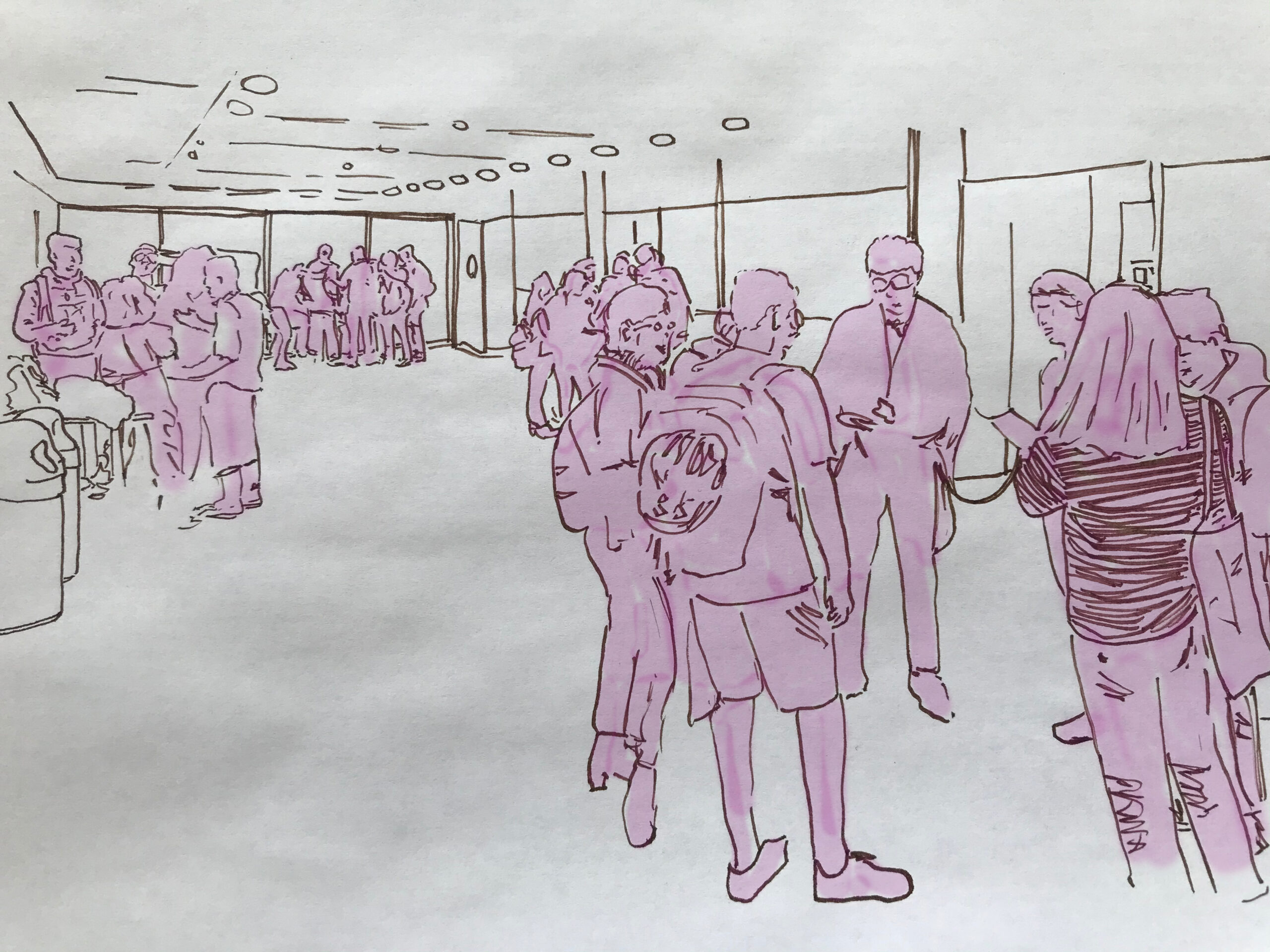Having graduated on 1st January 2022, my PhD thesis is now freely available to download from Spiral. This is not your traditional thesis – but it is an easy, accessible and fun read.
I took a huge risk, writing my thesis in a non-traditional narrative style – and sticking to my (perhaps extremist) views on true interdisciplinarity. The writing therefore is accessible to any audience, and has no disciplinary home.
I hope that you’ll consider downloading the thesis, flicking through the pages and perhaps allowing yourself to be drawn into the narrative. There is a lot packed into this work – ideas about education, the philosophy and more pragmatic understandings of authenticity, details about the design of my modules and specific learning activities within, stories from the classroom(s), drawings and poetry. There are even asides into architecture, music, photography and art. If it was a part of the process of this research, it is in there somewhere.
To be or not to be provocative
When I began working, I knew that I was being (a little) provocative, but over time, this became lost to me and I felt that I was working in the most natural and obvious way.
Now that I am at the stage of sharing my thesis and ideas with others, I have been reminded of the provocative aspects of the work. It has taken me a while to realise that a non-specialist can engage with the writing in a different way to a specialist disciplinarian, who might feel that in some respects I have neglected an important disciplinary perspective. However, to engage with and represent ideas in any single disciplinary fashion would have been to negate and neglect others.
For this reason, despite this research being about higher education, this is not a typical, disciplinary read about education. Despite using ethnographic methodology, the ideas are not couched in anthropological language and terminology.
I have not chosen this path for the sake of controversy. I saw my PhD as an incredibly personal and special opportunity – a privilege. The ultimate opportunity to practice what I preach in the classroom, to open the door on the intimate and inner workings of these classroom processes and to fully embody my own ideas about authenticity and my work with students. To have completed this work in any other way, to have bowed to tradition, convention or expectation would have been a betrayal of this opportunity.
And so I maintain a disciplinary naivety throughout, intentionally. This was not always comfortable for me, and will certainly not be comfortable for every reader. But I hope that you can see that this brings forward new opportunities to delve beneath the surface of the ideas, new perspectives and perhaps even a new aesthetic to the act of understanding.
The abstract below is the most formal piece of writing in the whole thesis, but attempts to situate the work in a wider context while hinting at what is to come in the thesis proper.
Abstract
This ethnographic work explores the concept of authenticity in the higher education classroom – specifically in my own first, second and third/fourth year undergraduate Change Makers classrooms. Presented as an evocative auto- and other- ethnography, the research details a cross-sectional insight into my own and my students’ experiences during a single academic year at a STEMM-focussed, research-intensive university. As my role entails the design and delivery of the highly interactive, student-centred Change Makers modules, this work specifically explores the interplay between the design, teaching and research domains.
This exploratory work brings the highly reflexive (auto)ethnographic lens not only to the experience under study, but to the conduct of such work, examining philosophical, epistemological and ontological issues arising from the aims, method and analysis within this research. Rather than accounting for, mitigating or otherwise trying to control the messy and problematic nature of this type of highly subjective and qualitative work, the research aims to surface and exploit these very issues to generate deeper, more complex and polysemous insights into our classroom experiences.
Privileging the integrity and wholeness of the ethnographic story-world and the experiences within, the narrative attempts to situate all component parts of the research within that story-world, both revealed and contained by the autoethnographic authorial exposition.
Embracing all of the above, this thesis subverts the norms of academic writing to capture existentialist sensibilities towards the notion, exploration and expression of authenticity. Notably, the work attempts to centre the role, experiences and insights of the reader in the conduct and communication of the analysis, whilst using varied and creative methods to present student voices alongside those of the author within the narrative.
